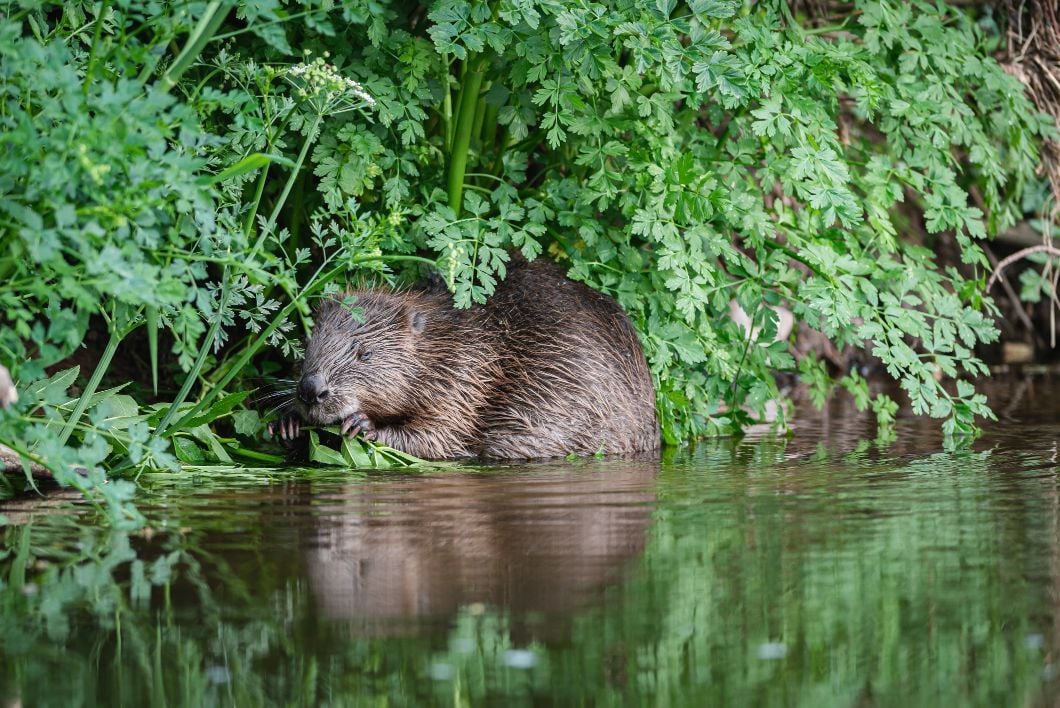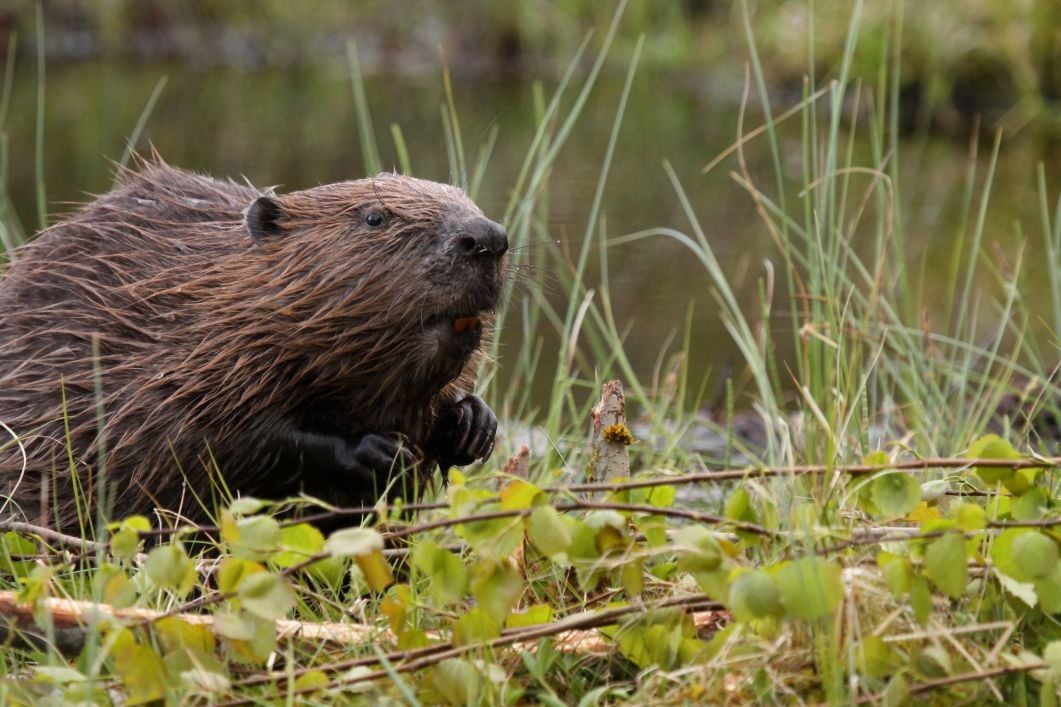
Our April pick for Book Club is the blunt, braw and boisterous Bringing Back the Beaver by farmer and nature conservationist Derek Gow. It’s the story of the quest to bring back a species which we hunted to extinction in Britain around 200 years ago, and chronicles the bizarre barriers that stand in the path of a fully fledged return for the beaver in the modern day - complete with some suitably cute and cuddle detours along the way.
Beavers are ecosystem engineers. Not only do their dams help provide natural infrastructure which prevents downstream flooding, they also clean the water they live in, ridding the rivers of high levels of sediment, nitrogen and phosphorus, we learn. The wetlands created by the still water behind their dams creates a setting where otters, water voles, birds, insects and fish can thrive (not to mention humans, with ecotourism opportunities abundant).
All of these benefits are proven through scientific research and real-life case studies. It’s why bringing back the beaver is logical, and why so many other countries in Europe have already done it. Many of the current beavers in the UK descend from a pair in Poland. There are over 20,000 in Bavaria, and there’s a particularly comical tale in Gow’s book of how a rogue environmentalist, Olivier Rubber, took matters into his own hands to reintroduce the beaver to Belgium - after which ‘Beaver and Belgian Beer’ tours soon began to spring up in Brussels.

Why one would need to take matters into their own hands becomes clear after reading Gow’s accounts of the frustrations he’s faced in his numerous attempts to bring beavers to the UK, spanning from “the times when the mere theory was being roundly opposed by bewhiskered tweedy opponents in fortified castles of great antiquity” to more recent attempt foiled by “embittered civil servants” and “breathtakingly moronic” policy. As you can tell, Gow does not pull his punches.
Also a farmer himself, Gow criticises the subsidies model that leads other farmers to “apply herbicides or chemical fertilisers and receive vast grants for eviscerating habitats that possibly date back in time to the Bronze Age” and tackles head on the anti-beaver arguments from across the board.
Gow's passion and love for beavers comes across in spades as he describes his often laugh-out-loud encounters with the animals and he tugs at the heartstrings as he outlines the shocking percentage of beavers that are still being legally killed in Britain, even after the animals received protected status in the UK.

Bringing Back the Beaver answers in detail the question of why, with so many obvious positives, the beaver has not yet been fully reintroduced into Britain in greater numbers, despite public opinion, the science and the fact that they're adorable all being on their side. The answer is usually a frankly baffling lack of ambition which manifests itself in the delays and defiance of bureaucratic organisations, who seem prepared to go out of their way to hinder bids to stop the loss of British biodiversity, and who draw the ire of Gow throughout.
With more beavers in the UK now than there have been in centuries, Gow’s book ends on a cautiously optimistic note which emphasises the job is not done yet.
As the conservationist writes, “we have created and continue to create in Britain through our own actions a landscape so utterly devoid of opportunity, so stripped of life resource that even the tiny creatures can no longer exist. We have tried to take everything.” It’s a call to arms that now is the time for us to give back to our nature; and what better to give than our age old friend - the beaver.
Support indy bookshops by buying 'Bringing Back the Beaver' from your local bookshop, or get the book online from Bookshop.org.
This article contains affiliate links. Which basically means we make a little commission if you click through and buy something. It doesn’t cost you anything, and it just means we can do more good things in good places.

